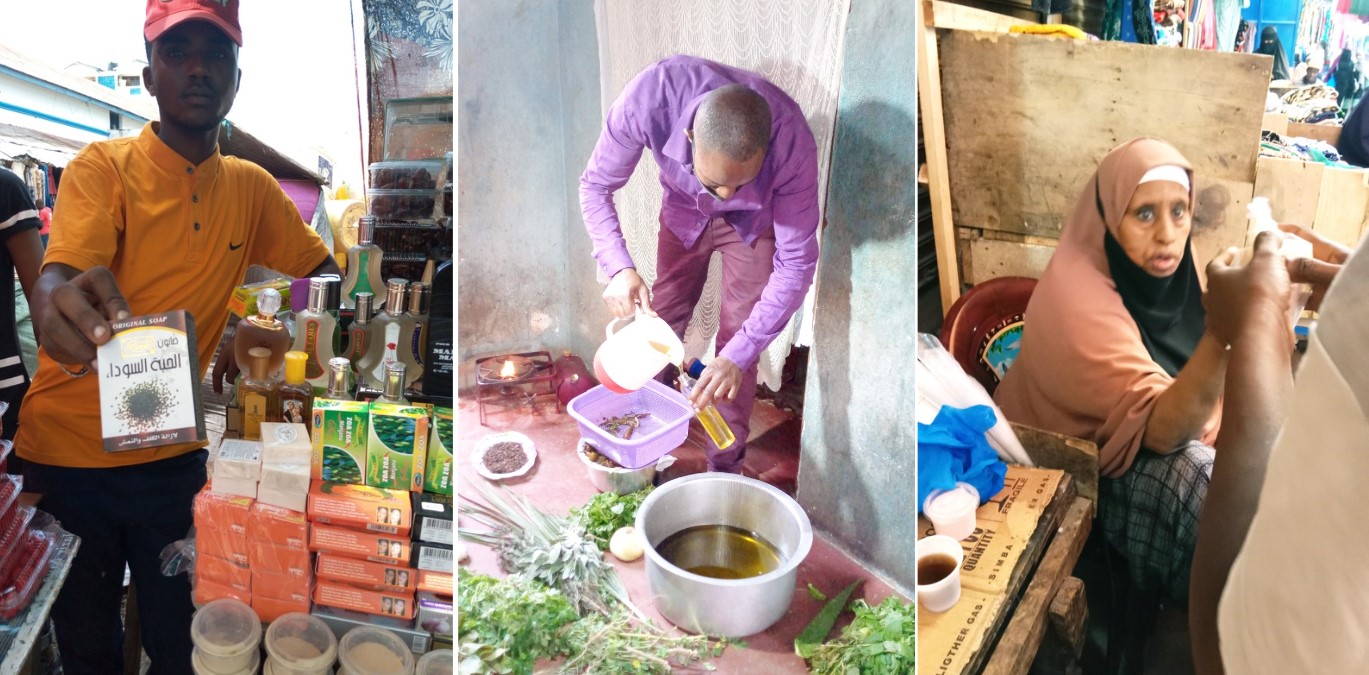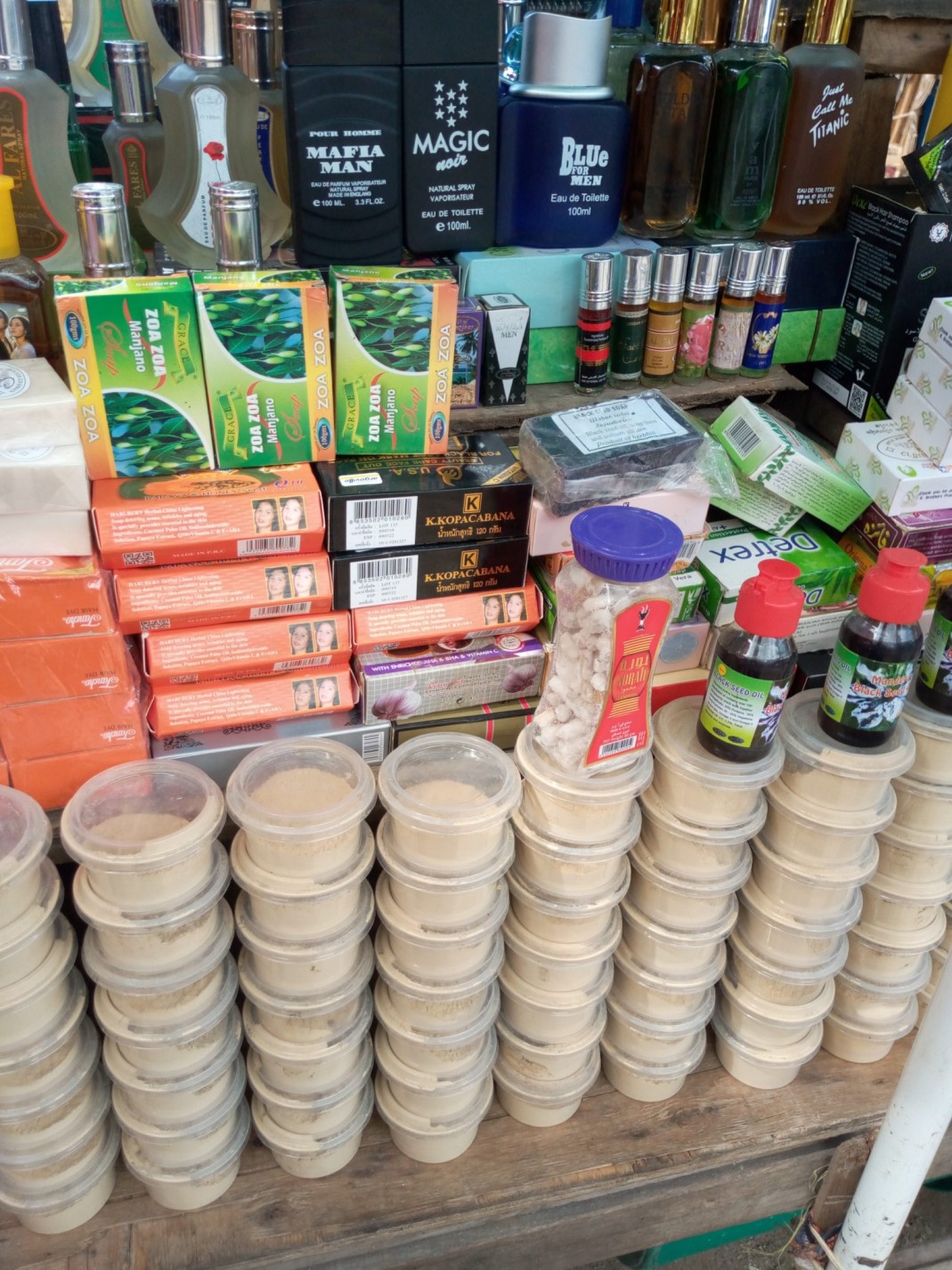Why Mombasa women are shifting to natural beauty products

Stricter regulations and consumer awareness campaigns can help fight challenges posed by counterfeit products.
As awareness about the negative effects of some modern chemical-laden beauty products increases, a growing number of people, especially women, are rediscovering the benefits of natural beauty products that enhance their complexion without causing harm to their skin.
Halima Omar, a 27-year-old resident of Old Town in Mombasa, vividly recalls her journey with beauty products.
More To Read
- County issues new festive season rules for public events in Mombasa
- KeNHA set to ease holiday traffic with partial opening of Mombasa–Malindi highway
- Anger in Mombasa’s Mikindani as families rely on costly bowsers amid prolonged water crunch
- Mombasa sets January deadline for tuk-tuk operators' SACCO registration
- Man charged with schoolgirl’s murder shocks court, seeks plea deal
- Mombasa turns trash into opportunity through historic Sh17 billion waste management partnership
"Growing up dark-skinned among predominantly light-skinned peers wasn't easy," she says.
Halima succumbed to societal pressures and started bleaching her skin as a teenager. She experimented with chemical products that left her with regrets as her skin suffered negative effects.
The products she used were of low quality, a fact she believes made her skin react.
"My skin started peeling off and I developed dark patches," she laments.
It was upon realising the dangers of chemical bleaches that she switched to natural remedies.
A stroll through Mackinnon Market, locally known as Marikiti, reveals a flourishing trade in organic beauty products, which traders like Najma Haroon strongly advocate for.
"Inorganic products often contain harsh chemicals linked to serious health issues, including skin cancer," Najma says.
Raised in a household where natural remedies were prioritised, she continues to use coconut oil and other traditional ingredients passed down through generations.
"My grandmother used coconut oil enriched with black seeds, cloves, and fenugreek," Najma says, adding that the ingredients ensured smooth skin and shiny hair.
Rose Mkalla, another advocate of natural beauty, says organic products are safe and cost-effective.
"I mix sandalwood, turmeric, and rice powder for my face mask. It costs just Sh150, far less than commercial alternatives, and I do not worry about side effects."
Mkalla also incorporates rice water into her hair care routine for its strengthening properties.
Asked how she identifies the products to use, Mkalla says she has learnt it mainly through social media.
Other Topics To Read
 From left: Abdirazack Mahmoud, a trader who sells organic products at Marikiti. John Kariuki sells natural oil that helps people with bald heads and dandruff. Luli Aden at her stall in Marik from where she supplies beauty products across the country. (Photos: Mishi Gongo)
From left: Abdirazack Mahmoud, a trader who sells organic products at Marikiti. John Kariuki sells natural oil that helps people with bald heads and dandruff. Luli Aden at her stall in Marik from where she supplies beauty products across the country. (Photos: Mishi Gongo)From left: Abdirazack Mahmoud, a trader who sells organic products at Marikiti. John Kariuki sells natural oil that helps people with bald heads and dandruff. Luli Aden at her stall in Marik from where she supplies beauty products across the country. (Photos: Mishi Gongo)
"All the products are advertised on social media. But before using any product, I make sure I research on its components and uses," she says.
The resurgence of natural beauty products extends beyond Mombasa.
John Kariuki, who sells organic oils, says there has been a significant increase in demand across Kenya.
"Natural products appeal to customers seeking allergy-free solutions. They appreciate the gentleness and effectiveness of these products," he says.
Luli Aden a trader at Marikiti, supplies natural ingredients to customers nationwide.
"There's a noticeable shift towards natural beauty practices," she says.
She observes that young people in particular are embracing natural products for their affordability and health benefits. She says supplies to people as far as Busia, Bungoma Nakuru, and Nairobi.
Abdirazak Mahmoud, another trader, navigates a delicate balance between supply and demand, grappling with the prevalent counterfeit sandalwood products flooding the market.
Abdirazak, a seasoned trader in organic products, says local businesses face challenges in maintaining product integrity amidst rising concerns over authenticity.
"Sandalwood is a prized commodity in our trade, valued for its aromatic properties and myriad uses in beauty, medical, and religious practices. However, the influx of counterfeit sandalwood has become a significant hurdle for us," says Abdirazak.
With some suppliers selling counterfeit sandalwood, sellers like Abdirazak have to always be cautious when making purchases to ensure they do not unknowingly supply substandard products to their customers.
The problem, Abdirazak says, extends beyond just economic losses.
"Some suppliers mix sandalwood powder with other substances to cut costs, compromising its purity and efficacy," he says.
Such products not only fail to deliver the expected results but also tarnish the reputation of genuine traders.
Adding to the complexity is the conservation status of sandalwood, now classified as an endangered species.
"Sandalwood's scarcity has intensified due to illegal trafficking, primarily to India, where it is highly prized for its cultural and medicinal value," Abdirazak says.
This illegal trade has led to the near extinction of certain species of sandalwood, exacerbating the challenges faced by legitimate traders.
Mary Wambui, a regular customer at his shop, says authenticity is an important factor to consider when buying beauty products.
"I prefer buying from trusted sources like Abdirazak because I know he ensures the products are genuine," she says.
 Organic beauty products displayed at the Mackinnon Market in Mombasa. (Photo: Mishi Gongo, EV)
Organic beauty products displayed at the Mackinnon Market in Mombasa. (Photo: Mishi Gongo, EV)Organic beauty products displayed at the Macknnon Market in Mombasa. (Photo Mishi Gongo, EV)
She says fake sandalwood does not have the same effects as the real one, and that she can easily tell the difference.
Reflecting on customer preferences, Abdirazak says trends in the beauty industry have been fast evolving.
He says more people, including those from upcountry, are now opting for organic products, adding that even high-end salons are shifting towards organic alternatives to meet the growing demand for natural beauty solutions.
Educating customers about the proper use and benefits of sandalwood products is the cornerstone of Abdirazak's business strategy.
"Before selling a product, I ensure my customers understand its benefits and usage. This not only enhances customer satisfaction but also builds trust," he told The Eastleigh Voice.
He notes that, unlike synthetic alternatives, organic products are perceived as safer and more environmentally friendly. Their preference is driving the market towards sustainable practices.
In response to the challenges posed by counterfeit products, Abdirazak advocates for stricter regulations and consumer awareness campaigns.
"Consumers should also educate themselves to distinguish genuine products from fake ones," he says.
Despite the growing preference for organic options, Zahra Hajj of Tamara Beauty Shop defends the safety of original inorganic products when used correctly.
"It's crucial to source from reputable suppliers to avoid health risks associated with counterfeit products," she says.
As the beauty industry continues to evolve, the resurgence of natural products reflects a broader movement towards safer and sustainable beauty practices.
Whether driven by health concerns, cultural traditions, or personal preferences, individuals like Halima, Najma, and Rose are leading the charge toward embracing beauty in its natural form.
Top Stories Today












































